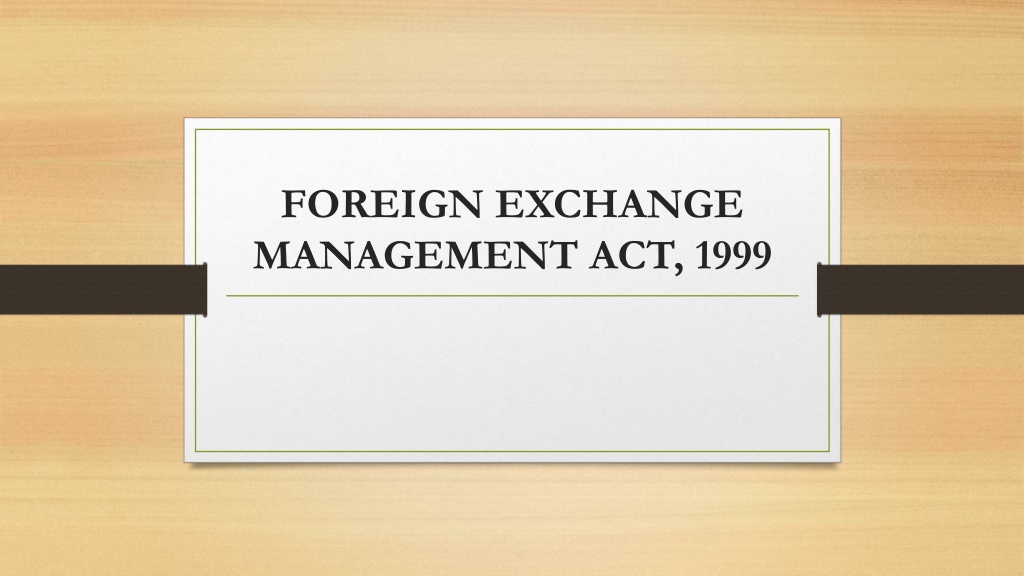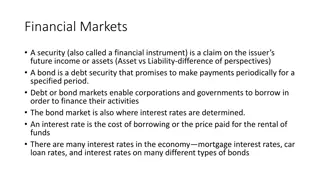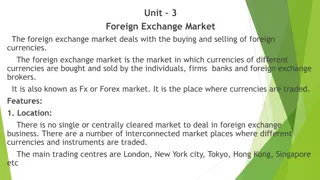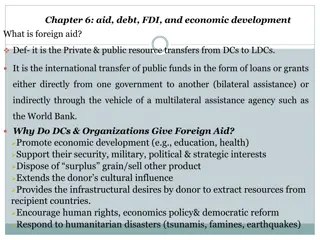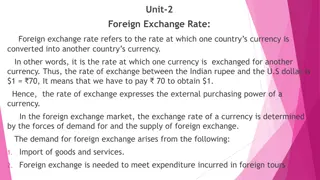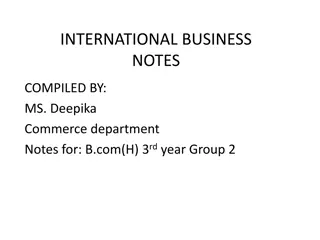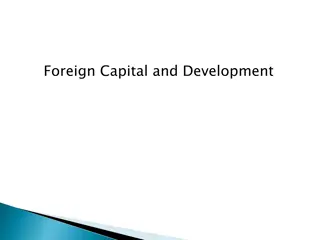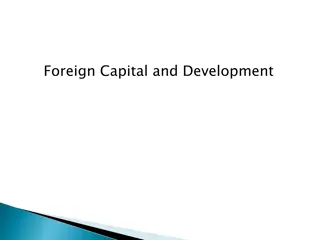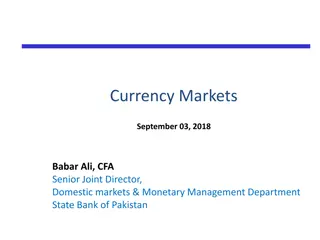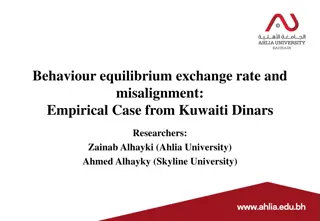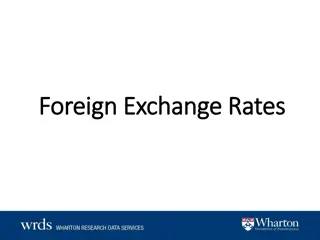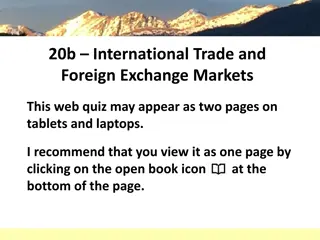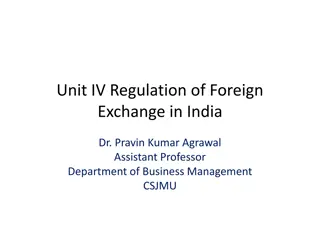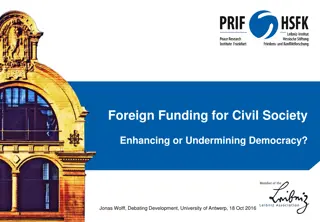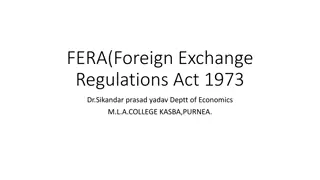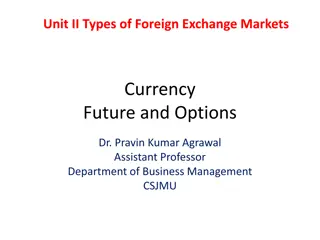Foreign Exchange Management Act, 1999: Overview and Structure
The Foreign Exchange Management Act (FEMA) of 1999 replaced the Foreign Exchange Regulation Act (FERA) and empowers the Reserve Bank of India to regulate foreign exchange transactions. FEMA imposes restrictions on foreign exchange dealings and requires transactions to be conducted through authorized entities. The legislation also allows Indians to engage in foreign exchange transactions and own property abroad. The structure of FEMA includes the Enforcement Directorate with zonal and sub-zonal offices across India.
Download Presentation

Please find below an Image/Link to download the presentation.
The content on the website is provided AS IS for your information and personal use only. It may not be sold, licensed, or shared on other websites without obtaining consent from the author. Download presentation by click this link. If you encounter any issues during the download, it is possible that the publisher has removed the file from their server.
E N D
Presentation Transcript
FOREIGN EXCHANGE MANAGEMENT ACT, 1999
What is FEMA? It is a set of regulations that empowers the Reserve Bank of India to pass regulations and enables the Government of India to pass rules relating to foreign exchange in tune with the foreign trade policy of India.
Which Act did FEMA replace? FEMA replaced an act called Foreign Exchange Regulation Act (FERA).
What is FERA and when was it passed? FERA (Foreign Exchange Regulation Act) legislation was passed in 1973. It came into effect on January 1, 1974. FERA was passed to regulate the financial transactions concerning foreign exchange and securities. FERA was introduced when the Forex reserves of the country were very low.
Main Management Act, 1999 Features of Foreign Exchange It gives powers to the Central Government to regulate the flow of payments to and from a person situated outside the country. All financial transactions concerning foreign securities or exchange cannot be carried out without the approval of FEMA. All transactions must be carried out through Authorised Persons. In the general interest of the public, the Government of India can restrict an authorized individual from carrying out foreign exchange deals within the current account. Empowers RBI to place restrictions on transactions from capital Account even if it is carried out via an authorized individual. As per this act, Indians residing in India, have the permission to conduct a foreign exchange, foreign security transactions or the right to hold or own immovable property in a foreign country in case security, property, or currency was acquired, or owned when the individual was based outside of the country, or when they inherit the property from individual staying outside the country.
Structure of FEMA The Head Office of FEMA, also known as Enforcement Directorate, headed by the Director is located in New Delhi. There are 5 zonal offices in Delhi, Mumbai, Kolkata, Chennai, and Jalandhar, each office is headed by Deputy Director. Every 5 zones are further divided into 7 sub-zonal offices headed by Assistant Directors and 5 field units headed by Chief Enforcement Officers.
